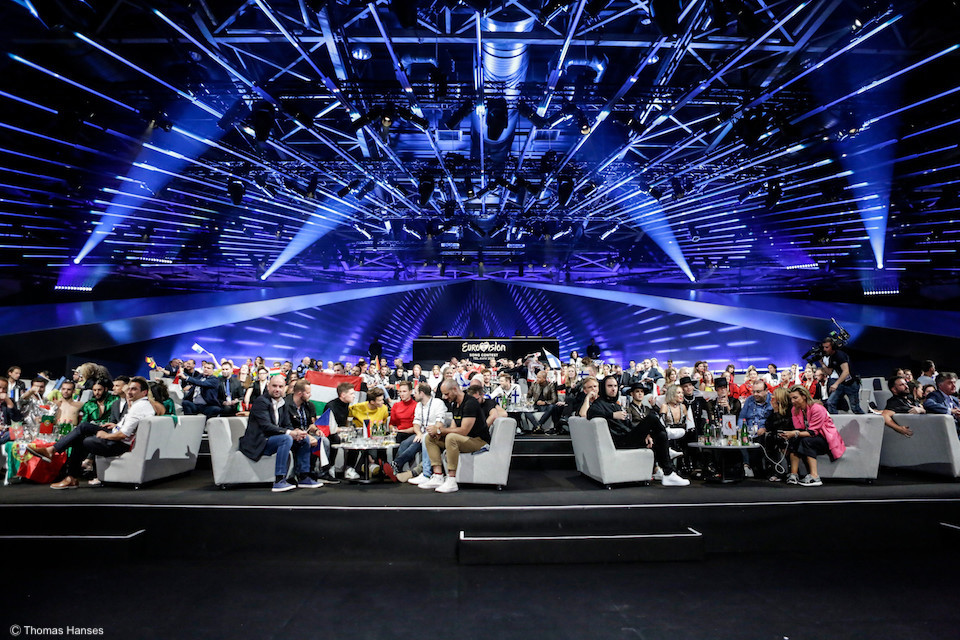With Eurovision just around the corner, we thought we’ve delve into the whys, hows and whens of the world’s biggest music competition.

What is Eurovision about?
In Eurovision, more than 40 countries compete to win votes for the best song! When the competition first started in 1956, it was exclusive to European countries and only seven nations participated. Since then, the rules have relaxed – so much so that even Australia is in.
Today Eurovision is far from being just a song contest. It’s about music but it’s equally about putting on a show and creating a buzz. Among Eurovision winners is, for example, a group of monsters.
How many people tune in… and why?
Eurovision is considered one of the world’s longest running and most-watched reality television franchises, attracting up to 600 million viewers every year. In the last two decades, it has consistently ranked among the most-watched live entertainment TV broadcasts worldwide, outside of sporting events. The Super Bowl is peanuts compared to Eurovision!
It’s hard to say why Eurovision is so popular. It has a strong fan base but most viewers are passionate about it only once a year, and some just love to hate it. William Lee Adams, a Eurovision blogger and YouTuber, describes Eurovision as a combination of “figure skating, beauty pageants, and singing competitions”. What’s not to love!
Who decides the winner of Eurovision?
The participating countries. For years, each country ranked other countries’ performances awarding them points from 1 to 12, excluding 9 and 11. Each country still awards the same number of points, but two sets of them; one from a national jury and the other from national televoting. So the top points can be anything between 12 and 24 points.
This all happens live, and if you have no idea how the voting works, then it’s like watching a lecture on nuclear physics. On top of that, the voting takes place when it’s way past bedtime (if you watch it in Russia anyway).
Has anyone famous ever won Eurovision?
Yes; but they weren’t particularly well known when they did. ABBA won in 1974 with “Waterloo” and made their international breakthrough shortly after. Few people know that the group had released “Ring Ring” a year before – they were never chosen to represent Sweden in Eurovision with the song but they did top the charts across Europe and South Africa.
Céline Dion won Eurovision with “Ne partez pas sans moi”, representing Switzerland in 1988, although she is Canadian. Anyone can represent any country in Eurovision, and anyone can write the song, regardless of their nationality.
Which country has won Eurovision the most?
Ireland has won Eurovision seven times which is more than any other country, but looking at the distribution of ‘maximum points’ votes instead of wins, the UK’s entries have been the most successful in the song contest’s final history.
According to Casumo’s findings, however, things might be about to change. Sweden is a close second for both the number of wins and distribution of ‘maximum points’ votes. Given the Scandinavian country’s recent strong track record – 10 top 5 positions since 2000 – Ireland and the UK have no reason to be complacent.

Do countries favour each other?
Oh yes. This is why the European Broadcasting Union introduced national juries to balance the results from televoting in each country. Some people argue that the juries are just as corrupt as televoting, which is influenced not only by sympathies and shared cultural ties between countries, but also the movement of people from one country to another. There is, for example, a significant Greek population in Cyprus and Finnish population in Sweden.
Casumo found out which countries have given their ‘maximum points’ vote to the same country the most frequently over the years. Number one was Cyprus, who gave a ‘maximum points’ vote to Greece as many as 22 times (37% of the time the country has been eligible to vote Greece).
Who’s the favourite to win this year?
Currently, Duncan Laurence of the Netherlands is considered a frontrunner, but Russia’s Sergey Lazarev and Italy’s Mahmood follow close behind – all quite conventional pop tunes. One thing to keep an eye on is who each country gives their ‘maximum points’ vote to. The UK has backed the eventual competition winner by awarding them the ‘maximum points’ vote on 25 occasions. Latvia and Australia have backed the winner most regularly – in 50% of the finals they’ve been eligible to vote in.
Romania and Azerbaijan, however, have never guessed the winner correctly…
Who organises the event, and why is it in Israel this year?
The contest is organised by the national public broadcaster of the country that won the year before. Last year Israel’s Netta Barzilai won, so Israel is this year’s host nation. The European Broadcasting Union supports and supervises the work of the host broadcaster, so the contest looks pretty much the same every year: big, shiny and extravagant.
In the 1990s, Ireland hosted Eurovision four times in just five years. What the nation lost in organising costs, it certainly gained in visibility!
